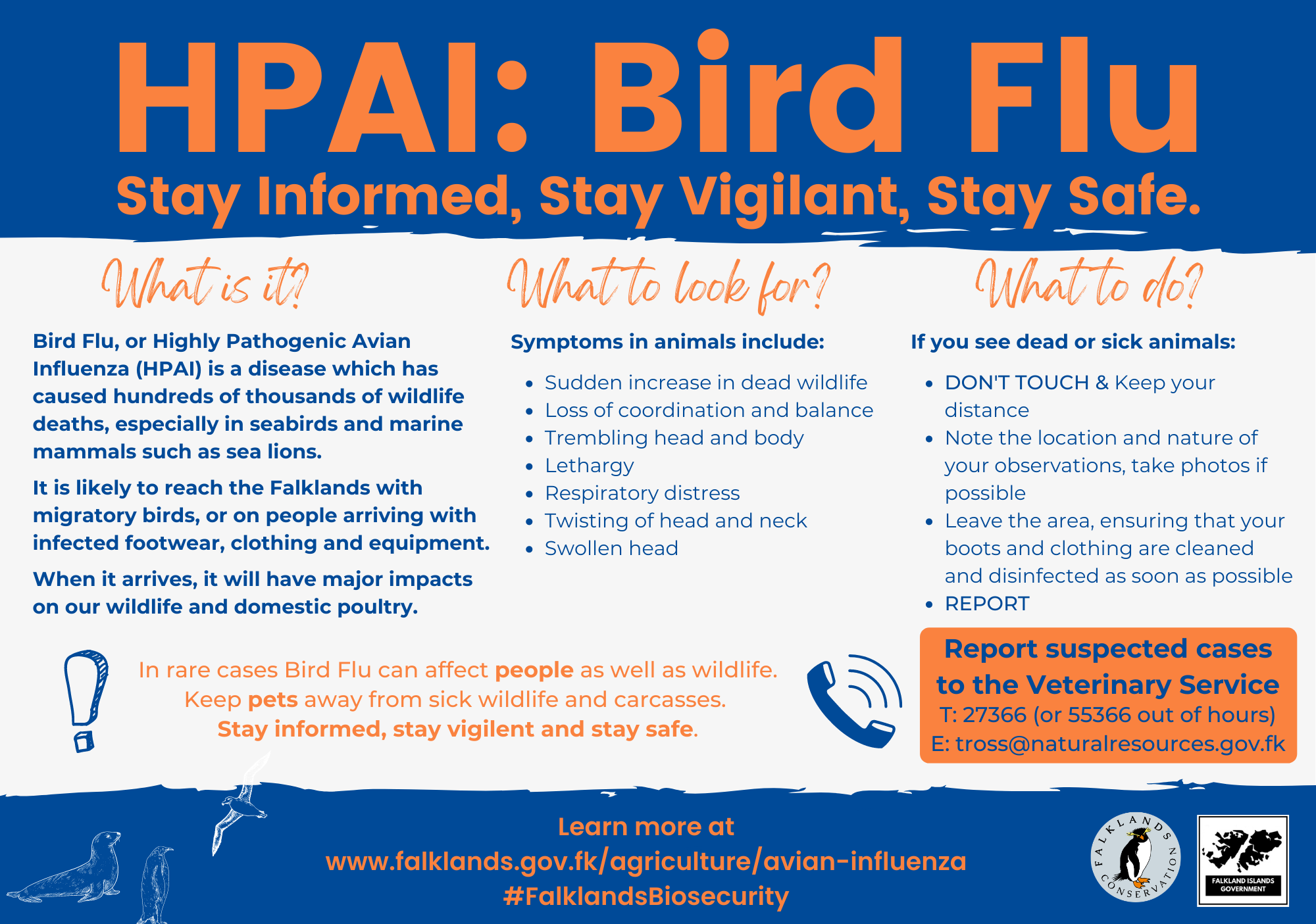Bird Flu Guidance
In the summer of 2023, Highly Pathogenic Avian Influenza (Bird Flu) killed over 500,000 seabirds and 20,000 sea lions as it rapidly spread through South America, inching closer to the Falkland Islands. Many of the seabird species such as penguins, cormorants, and gulls, that were badly affected in South America are also found in the Falklands, as well as marine mammals like sea lions.
The threat of bird flu is deeply concerning, and Falklands Conservation along with other organisations and specialists, have been supporting the Falkland Islands Government (FIG) as they lead on preparations for the disease. This includes: bolstering biosecurity to limit the risk of its accidental arrival and spread by people on infected footwear, clothes and equipment; increasing public awareness to ensure that people recognise and report the early signs of bird flu in wildlife and are able to keep themselves safe from infection; and creating a response plan and ensuring resources and equipment are in place to deal with the disease.
Going forwards Falklands Conservation’s work, such as our seabird monitoring programme, will be even more important in understanding the impacts of bird flu on our seabirds and other wildlife.
What can people do?
Be alert to signs of bird flu in wildlife.
Don’t touch dead or sick wildlife and keep pets away.
Report signs of bird flu to the Veterinary Service.
Practice thorough biosecurity when moving from place to place.
For more information, please visit the Falkland Islands Government website
Avian Flu Guidance

What is Avian Flu?

What is happening?

Likely effects on the Falklands

What to look out for

What to look out for

Practise Good Biosecurity

Report

For more information





